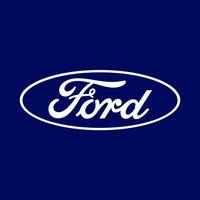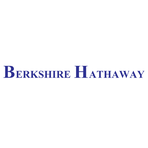The Tariff Tango: Trump’s Cinematic Cliffhanger
May 7, 2025, 9:46 am

Location: United States, Michigan, Ypsilanti
Employees: 10001+
Founded date: 1896
Total raised: $40K

Location: United States, Nebraska, Omaha
Employees: 10001+
Founded date: 1839
Total raised: $1.9B
In the theater of politics, few performances rival the spectacle of Donald Trump. His latest act? A proposed 100% tariff on movies produced outside the United States. It’s a plot twist that leaves audiences scratching their heads. The S&P 500, meanwhile, has taken a tumble, breaking its nine-day winning streak. The curtain rises on a new era for Berkshire Hathaway as Greg Abel prepares to step into Warren Buffett's shoes. The stage is set for a dramatic economic landscape.
Trump’s tariff announcement is as bizarre as it is bold. It’s a move that feels more like a scene from a reality show than a serious economic policy. The mere mention of a 100% levy sent shockwaves through the entertainment industry. Shares of major players like Netflix and Paramount took a hit. Investors recoiled, fearing the implications of such a sweeping measure. How would this work? Would it mean the Oscars would have to eliminate the Best Foreign Film category? Would American actors face penalties for appearing in international films? The questions are endless, and the answers remain elusive.
This isn’t just about movies. It’s about culture. A tariff on films could reshape the landscape of American cinema. It could stifle creativity and limit diversity. The implications stretch far beyond box office numbers. It’s a reminder that in Trump’s world, the unexpected is the norm. Each announcement is a cliffhanger, leaving the audience eager for the next twist.
As the markets reacted, the S&P 500 fell by 0.64%. It snapped its longest winning streak since 2004. The Dow Jones Industrial Average dipped 0.24%, while the Nasdaq Composite declined 0.74%. The market’s response reflects a broader unease. Investors are wary of the unpredictable nature of Trump’s policies. They know that each tweet can send stocks spiraling.
In the midst of this chaos, a significant transition is underway at Berkshire Hathaway. Warren Buffett, the Oracle of Omaha, is stepping down. Greg Abel will take the helm as CEO on January 1, 2026. This marks the end of an era. Under Buffett’s leadership, Berkshire Hathaway has seen astronomical growth. Shares have skyrocketed over 5.5 million percent since he took control in 1965. Now, the company faces a new chapter. Investors are watching closely, wondering if Abel can maintain the momentum.
The uncertainty doesn’t stop there. Ford Motor Company has also felt the sting of Trump’s tariffs. The automaker beat Wall Street’s first-quarter expectations but suspended its 2025 guidance. The anticipated impact of $2.5 billion from tariffs looms large. Ford expects to offset some of these costs, but the future remains murky. Shares fell around 2.5% in extended trading. The automotive industry is bracing for a bumpy ride.
In the tech sector, Palantir reported earnings that met expectations but saw its shares tumble by nearly 9% in after-hours trading. The company raised its full-year revenue outlook, yet investors remain skeptical. The tech landscape is shifting, and Palantir’s stock has defied the broader downtrend. Even with the drop, it’s up 64% this year. The volatility reflects a market grappling with uncertainty.
Amidst this turmoil, a new opportunity emerges. Analysts suggest that a Chinese tech ETF may be a better bet than U.S. tech stocks. The volatility in Chinese technology stocks could present a more favorable long-term outlook. As U.S. tech appears overextended, investors are looking for alternatives. The shifting tides of global markets are forcing a reevaluation of strategies.
The economic stage is crowded with challenges. The end of the de minimis rule has hit e-commerce giants like Temu and Shein hard. Once exempt from tariffs on shipments under $800, they now face duties as high as 120%. Prices are surging, and the competitive landscape is changing. Despite these hurdles, experts believe these companies can still thrive in the U.S. market. The resilience of e-commerce is being tested, but the fight is far from over.
As the curtain falls on this act, the audience is left with more questions than answers. Trump’s tariff on movies is just one piece of a larger puzzle. The markets are in flux, and the future is uncertain. Investors are navigating a landscape filled with unexpected twists. The economy is a stage, and every player has a role to play. The drama continues, and the next act is just around the corner.
In this high-stakes game, the only certainty is uncertainty. The theater of politics and economics is alive with tension. Each announcement, each market shift, is a reminder that we are all part of this unfolding story. The audience waits with bated breath, eager for the next scene. What will happen next? Only time will tell.
Trump’s tariff announcement is as bizarre as it is bold. It’s a move that feels more like a scene from a reality show than a serious economic policy. The mere mention of a 100% levy sent shockwaves through the entertainment industry. Shares of major players like Netflix and Paramount took a hit. Investors recoiled, fearing the implications of such a sweeping measure. How would this work? Would it mean the Oscars would have to eliminate the Best Foreign Film category? Would American actors face penalties for appearing in international films? The questions are endless, and the answers remain elusive.
This isn’t just about movies. It’s about culture. A tariff on films could reshape the landscape of American cinema. It could stifle creativity and limit diversity. The implications stretch far beyond box office numbers. It’s a reminder that in Trump’s world, the unexpected is the norm. Each announcement is a cliffhanger, leaving the audience eager for the next twist.
As the markets reacted, the S&P 500 fell by 0.64%. It snapped its longest winning streak since 2004. The Dow Jones Industrial Average dipped 0.24%, while the Nasdaq Composite declined 0.74%. The market’s response reflects a broader unease. Investors are wary of the unpredictable nature of Trump’s policies. They know that each tweet can send stocks spiraling.
In the midst of this chaos, a significant transition is underway at Berkshire Hathaway. Warren Buffett, the Oracle of Omaha, is stepping down. Greg Abel will take the helm as CEO on January 1, 2026. This marks the end of an era. Under Buffett’s leadership, Berkshire Hathaway has seen astronomical growth. Shares have skyrocketed over 5.5 million percent since he took control in 1965. Now, the company faces a new chapter. Investors are watching closely, wondering if Abel can maintain the momentum.
The uncertainty doesn’t stop there. Ford Motor Company has also felt the sting of Trump’s tariffs. The automaker beat Wall Street’s first-quarter expectations but suspended its 2025 guidance. The anticipated impact of $2.5 billion from tariffs looms large. Ford expects to offset some of these costs, but the future remains murky. Shares fell around 2.5% in extended trading. The automotive industry is bracing for a bumpy ride.
In the tech sector, Palantir reported earnings that met expectations but saw its shares tumble by nearly 9% in after-hours trading. The company raised its full-year revenue outlook, yet investors remain skeptical. The tech landscape is shifting, and Palantir’s stock has defied the broader downtrend. Even with the drop, it’s up 64% this year. The volatility reflects a market grappling with uncertainty.
Amidst this turmoil, a new opportunity emerges. Analysts suggest that a Chinese tech ETF may be a better bet than U.S. tech stocks. The volatility in Chinese technology stocks could present a more favorable long-term outlook. As U.S. tech appears overextended, investors are looking for alternatives. The shifting tides of global markets are forcing a reevaluation of strategies.
The economic stage is crowded with challenges. The end of the de minimis rule has hit e-commerce giants like Temu and Shein hard. Once exempt from tariffs on shipments under $800, they now face duties as high as 120%. Prices are surging, and the competitive landscape is changing. Despite these hurdles, experts believe these companies can still thrive in the U.S. market. The resilience of e-commerce is being tested, but the fight is far from over.
As the curtain falls on this act, the audience is left with more questions than answers. Trump’s tariff on movies is just one piece of a larger puzzle. The markets are in flux, and the future is uncertain. Investors are navigating a landscape filled with unexpected twists. The economy is a stage, and every player has a role to play. The drama continues, and the next act is just around the corner.
In this high-stakes game, the only certainty is uncertainty. The theater of politics and economics is alive with tension. Each announcement, each market shift, is a reminder that we are all part of this unfolding story. The audience waits with bated breath, eager for the next scene. What will happen next? Only time will tell.

